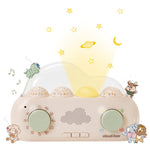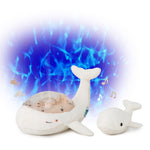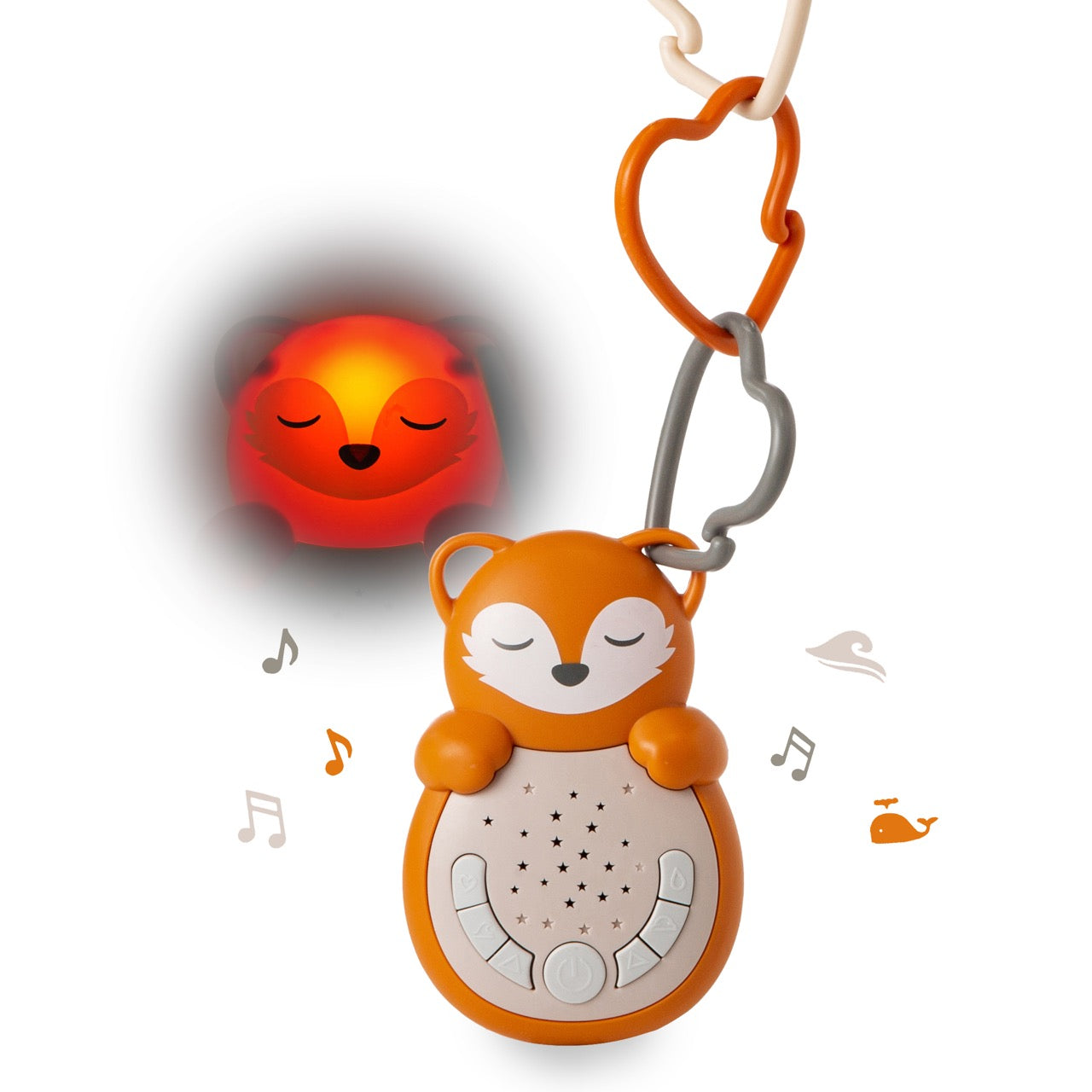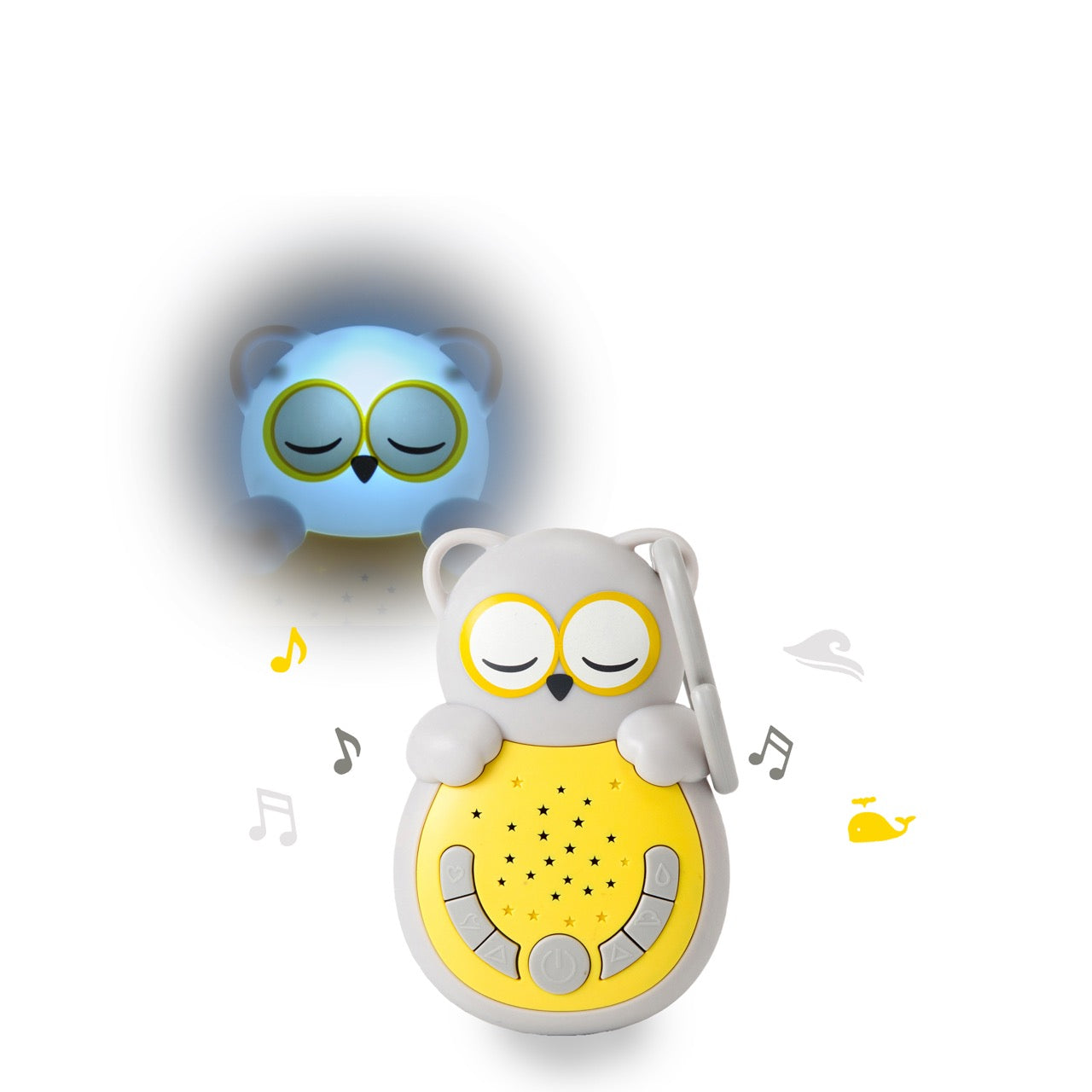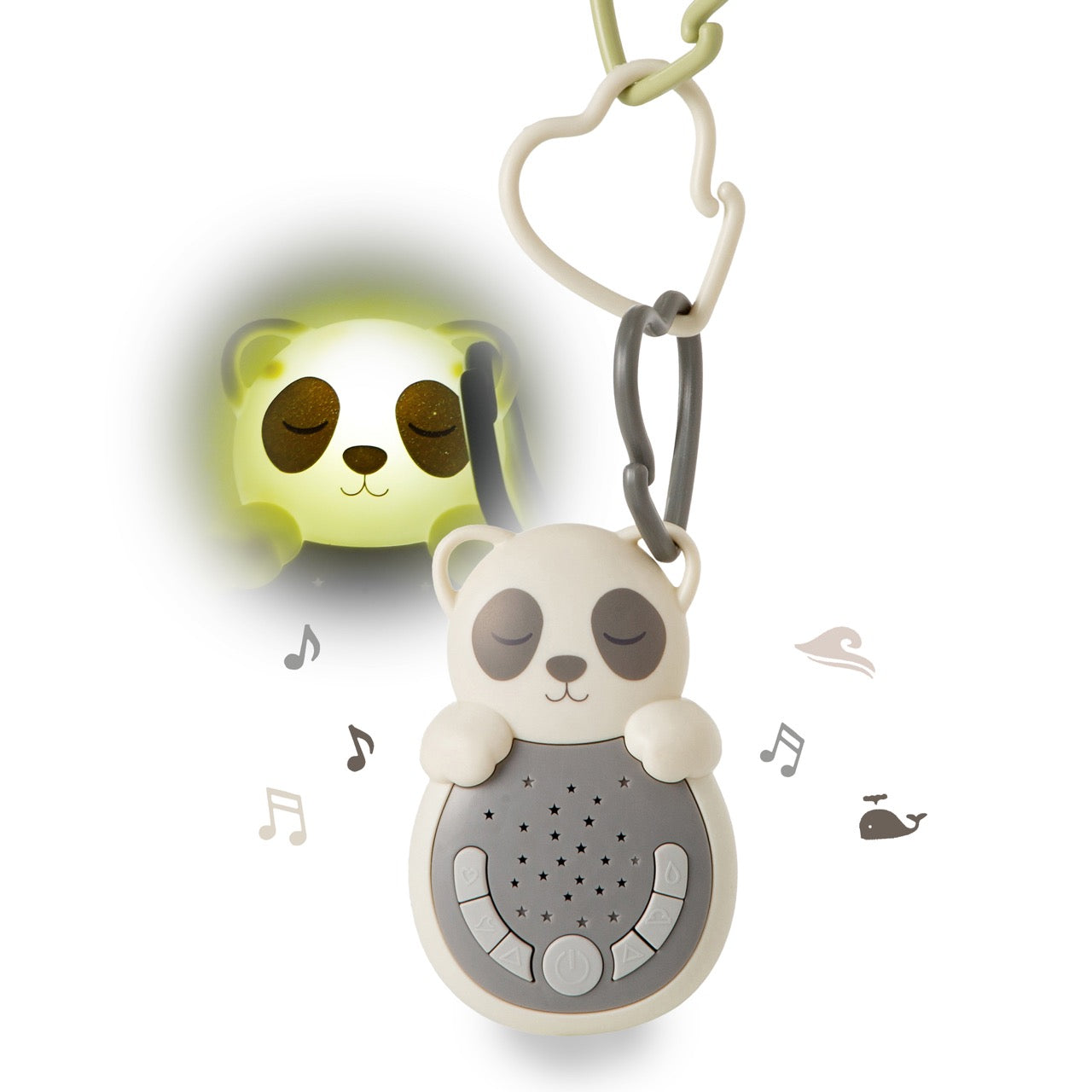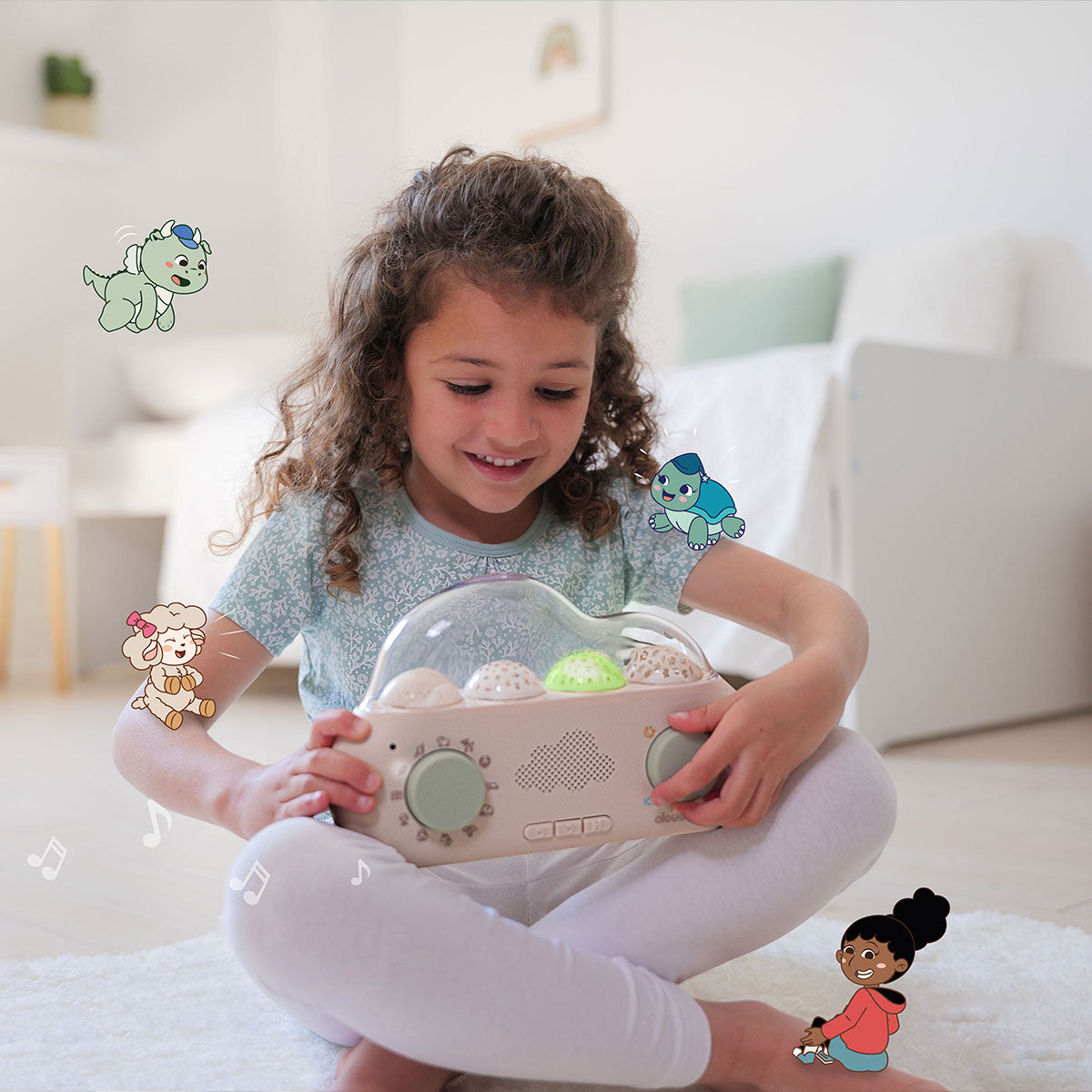
PREPARE YOUR TRIP TO THE LAND OF DREAMS
Improve the quality of your children’s sleep
Children's sleep is crucial to their growth and development. Restful nights are essential for their physical and emotional well-being. However, it's not always easy to ensure quality sleep in the youngest children. In this article, we'll explore various techniques that can help improve the quality of your children's sleep.
Bedtime ritual
Establishing a regular bedtime ritual can signal to a child's brain that it's time to get ready for sleep. This could include soothing activities such as reading a story, taking a warm bath or listening to soft music. This ritual creates a predictable, reassuring routine for the child, promoting a smooth transition to sleep.
White Noise
White noise consists of a uniform sound, such as the beating of the heart, the sound of the waves, the sound of rain or the song of whales. These sounds are reassuring for baby, having been able to hear them (in some cases) when he was in mum's tummy. They can also help to mask surrounding noises that could disturb baby's sleep. White noise creates a constant, soothing background sound that helps maintain a calm environment conducive to sleep.
Melodies and soft music
Certain melodies and soft music have a calming effect on children. Choose a nightlight that plays songs with a slow rhythm and soft tones. Involving a musical cuddly toy at bedtime also helps to establish a positive association between music and sleep.
A favourable environment
Make sure your child's bedroom is dark, quiet and at a pleasant temperature. It's been shown that soft nightlights and a cool temperature can promote deeper, more restful sleep for your little charges. All that's missing is a cuddly best friend and your child is ready for new adventures in complete safety.
Screen Limitation
It is advisable to limit the use of screens to at least one hour before bedtime, so that the child's brain is not disturbed in its production of melatonin. Instead, encourage quiet activities that promote relaxation.
Avoid stimulants before bedtime
It may seem obvious, but stimulants such as caffeine and sugar can affect children's sleep. Limit consumption of these substances, particularly in the hours before bedtime.
The quality of children's sleep is a major concern for many parents. By adopting these techniques, you can create a sleep-friendly environment and help your child develop healthy sleep habits. Remember that the key is the consistency of a well-constructed and adapted bedtime ritual. By establishing regular routines, you can give your child the security they need for a peaceful, restful night's sleep, promoting their overall well-being.
1 / 8

